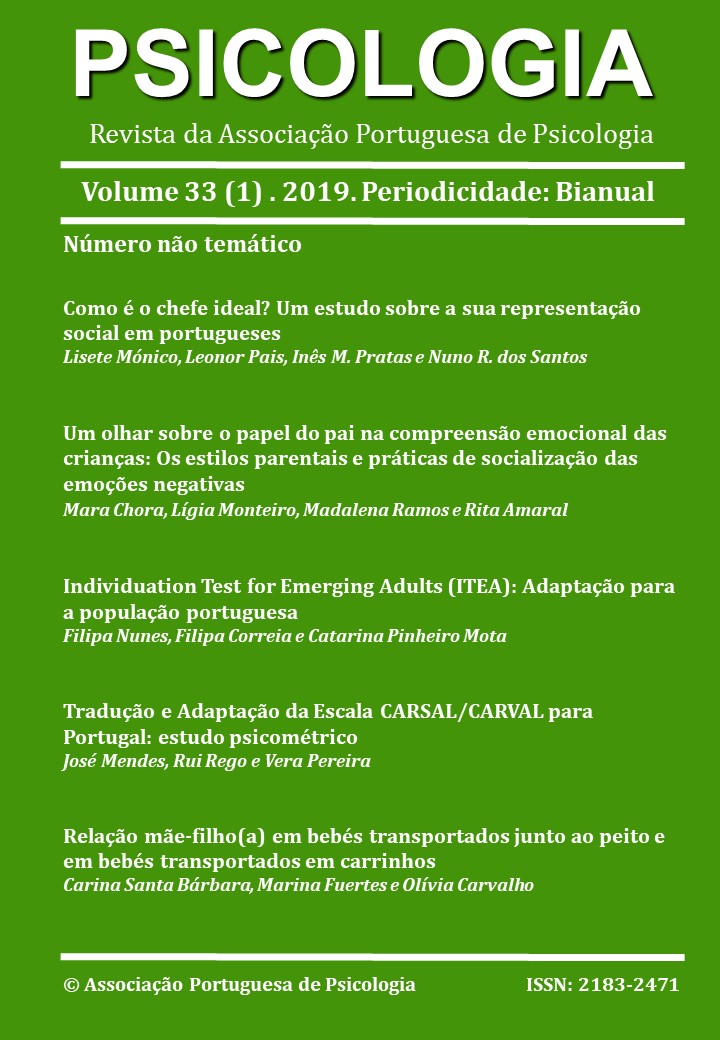Mother-Infant Relationship in maternal baby wearing and trolleys transport
DOI:
https://doi.org/10.17575/rpsicol.v33i1.1432Keywords:
contact, physical proximity, mother-infant relationship, Mother-child bonding, dyadic relationshipAbstract
Taking that maternal touch is a key factor in mother-infant relationships, we aim to compare the quality of mother-infant interaction in two groups: Group 1) 20 infants carried next to their mothers' bodies and Group 2) 20 infants who were carried in trolleys or other aids for transportation. Infants were between 6 and 36 months of age (20 girls, 13 primiparous) without developmental problems. Both groups were paired by gestational age, birth weight, children sex, children age, parents’ age, SES and nationality. The quality of the mother-infant interaction was evaluated in a free play situation with CARE-Index and MINDS scales. Our findings indicate that Group 1, in comparison with group 2, had lower dyadic quality. These findings support the idea that more than body closeness, it is the quality of interaction where such closeness occurs, that contributes to the quality of mother-infant relationships.


